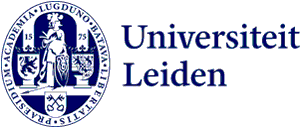
What the Leiden Teaching Prize has meant for three past winners
You win the Leiden Teaching Prize and suddenly all eyes are on you. Three past recipients reflect on how this student-awarded prize has changed how they work and improved their teaching – and how they chose to spend the money.
Who can call themselves Leiden’s teacher of the year? For many lecturers, the Leiden Teaching Prize is the ultimate accolade. Students choose the recipient of this prize, which the Leiden University Student Platform awards during the opening of the academic year. For some, it feels like a crowning achievement; for others, it is a validation of years of dedicated teaching. But they all agree on one thing: the prize opens doors.

Paul Gobée: ‘It felt like winning the Nobel Prize’
Anatomist Paul Gobée won the prize in 2023, but can still feel its impact. ‘It genuinely felt like winning the Nobel Prize’, he says. ‘Because it was a reward for a decision I made with my heart.’ By this, he means his decision to pursue teaching over clinical practice and recognition of his structured, activating and supportive teaching style, which stands in contrast to the ‘figure it out for yourself’ approach he found alienating as a student and young lecturer. ‘I see a lecturer as someone who provides direction and shares knowledge. The student has to be active, but the lecturer leads the way.’
Having won the prize, Gobée felt he was taken more seriously. ‘I was given more opportunities, was invited by the dean to discuss open educational resources and am now an active member of the Leiden Teachers’ Academy and Academia in Motion.’ These have also given him a platform to advocate for open educational resources (resources that are freely available for reuse) and for recognition of the lecturers who help create them. ‘It saves students money and may even prevent student dropout, which in turn benefits the university.’
Anatomy knowledge for medical interns
He’s investing the EUR 25,000 prize money in developing open-access reference materials on surgical anatomy for medical interns. ‘They’re literally at the table during operations but their knowledge of the anatomy relevant to that operation is often a bit rusty and hard to retrieve. This material will help prepare them more effectively.’

Emily Strange: ‘Stories should come from people on the ground’
When ecologist Emily Strange won the Teaching Prize in 2022, this was not only a personal honour but also a launchpad for innovation. ‘You suddenly have loads more colleagues asking: how do you go about that in your teaching? And I was invited to join in discussions on education policy.’ She is now co-chair of the Leiden Teachers’ Academy (LTA): ‘A network full of passionate lecturers from diverse backgrounds – incredibly inspiring.’
‘Teaching is a collective, creative effort’
For her, the LTA has proved more than an honorific. ‘Talking to colleagues who teach in completely different ways sparks new ideas. It’s enriched my teaching – not so much because I’ve changed but more because I feel more challenged to try new things.’ Ensuring collaborations have also broadened her perspective on teaching. ‘It shows that teaching is a collective, creative effort.’
Strange is spending her prize money on a unique education project in Tanzania. ‘I’ve worked in East Africa for about ten years, but have become increasingly aware of how the global discourse on biodiversity is dominated by Western voices when the researchers and conservationists there should be telling their own stories.’

Working with a visual anthropologist, she brings together local ecologists and filmmakers to develop new ways to make scientific work visible. ‘Those stories come back to Leiden, so students here can learn directly from researchers there. That makes education not just more interactive but also more inclusive.’
Ayo Adedokun: ‘Education is a powerful catalyst for empowerment'
For Ayo Adedokun, a lecturer at Leiden University College, winning the 2021 teaching prize was a moment of deep reflection. ‘It reminded me that good education is more than knowledge transfer: it’s about shaping young people. It’s about connection, care and long-term impact.’

Alongside renewed motivation, the prize gave him insight into his wider role as a teacher. ‘Education is a powerful catalyst – in terms of not just learning but also inspiring purpose, developing character and helping students lead with integrity in a complex world.’
Professionally, the prize had a huge impact: Adedokun was a finalist in the national Teacher of the Year competition and joined ComeniusNetwerk, a network of educational innovators. ‘Colleagues from throughout the Netherlands and I think about inclusive and future-focused education.’
Coaching students
For the three lecturers, winning the Leiden Teaching Prize meant more than just a certificate or a cheque. It was a moment of recognition that opened doors and reinforced their vision on teaching. ‘There are so many great lecturers’, says Paul Gobée. ‘For me, winning was the luck of the draw. There should really be more prizes and recognition for teaching – because good teaching always deserves appreciation.’

The power of recognition
For the three lecturers, winning the Leiden Teaching Prize meant more than just a certificate or a cheque. It was a moment of recognition that opened doors and reinforced their vision on teaching. ‘There are so many great lecturers’, says Paul Gobée. ‘For me, winning was the luck of the draw. There should really be more prizes and recognition for teaching – because good teaching always deserves appreciation.’
